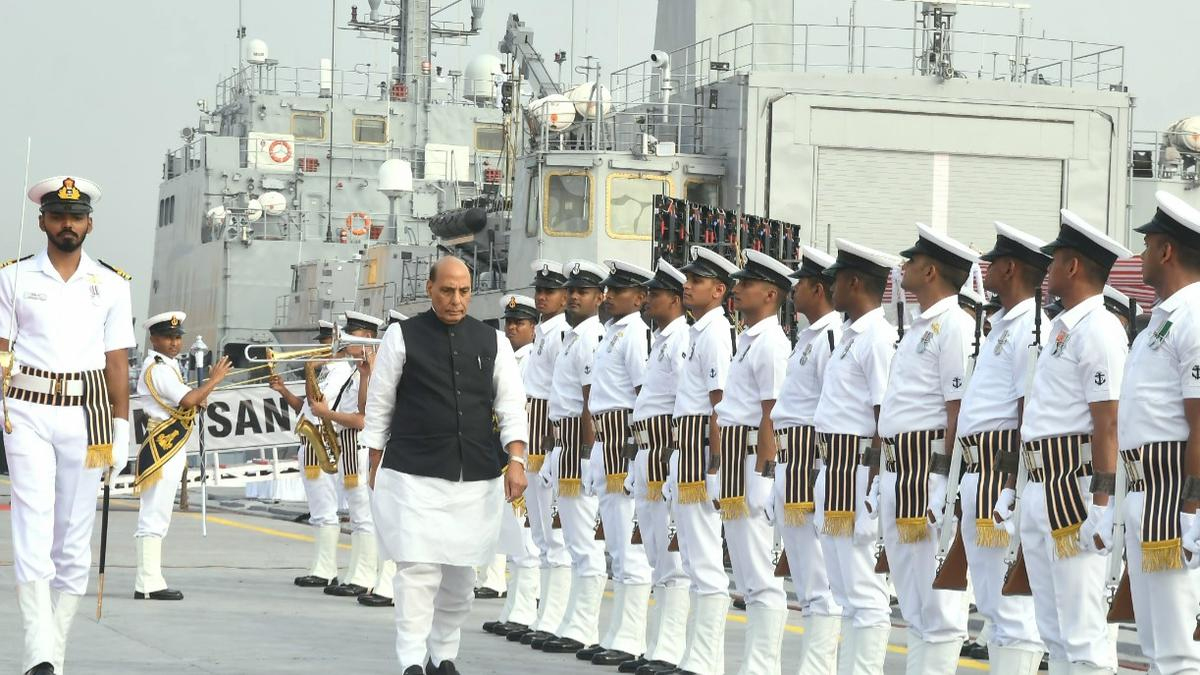 Agencies Agencies
VISAKHAPATNAM, Feb 3: INS Sandhayak, the first of four Survey Vessel Large (SVL) ships, was commissioned into the Indian Navy on Saturday at the Naval Dockyard in Visakhapatnam, in the presence of Defence Minister Rajnath Singh.
Stating that the SVL ship will go a long way in obtaining information about the oceans and achieving the twin objectives of protecting the country as well as others, Singh warned that those involved in maritime piracy and smuggling will not be tolerated. The primary role of INS Sandhayak is to carry out full scale hydrographic surveys of ports, harbours, navigational channels, routes, coastal areas and deep seas to enable safe marine navigation.
"Many choke points, like the Gulf of Aden, Gulf of Guinea etc. Are present in the Indian Ocean, through which a large amount of international trade takes place. Many threats remain at these choke points, the biggest being from pirates," Singh said, referring to the Indian Navy's prompt response to rescue ships from pirates.
The minister warned that those involved in maritime piracy and smuggling would not be tolerated and lauded the Indian Navy for providing security not only to Indian ships but also those belonging to friendly countries.
He reiterated India's determination to maintain freedom of navigation, trade and commerce among different countries, along with stopping illegal and unregulated fishing in the Indian Ocean.
"INS Sandhayak will further strengthen India's role as a superpower in the Indo-Pacific region and help the Indian Navy in maintaining peace and security," said Singh in an official release.
According to the defence minister, the country is marching ahead on the path of development with a more than ever strong Navy, providing security in the Indian Ocean and Indo-Pacific region as the first responder.
INS Sandhayak was built at Garden Reach Shipbuilders & Engineers (GRSE), Kolkata. This project was steered by the Warship Design Bureau of the Indian Navy.
It has a displacement of 3,400 tons and a length of 110 metres with a beam of 16 m, equipped with state-of-the-art hydrographic equipment, including deep sea and shallow water multibeam echo sounders, autonomous underwater vehicles and others.
|
